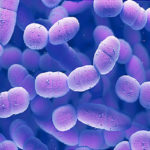- Iron needs are higher in women than in men
- Many people are unaware of the symptoms of iron deficiency anemia
New Delhi, September 11, 2017: As per recent reports, about 48% women in India in the age group 15 to 49 years have hemoglobin concentrations lower than 120g/L (12g/dL) and are diagnosed with anemia. Analysis also show that iron-deficiency anemia has remained the top cause of disability in India for 10 years now. The IMA indicates that anemia can have serious consequences such as fetal deaths, abnormalities, pre-term and underweight babies in pregnant women.
Anemia is a condition in which the number of red blood cells or their oxygen-carrying capacity is insufficient to meet physiologic needs, which vary by age, sex, altitude, smoking, and pregnancy status. Hemoglobin, a pigment present in red blood cells, binds oxygen and delivers it to various cells in the body. Menstrual bleeding causes loss of iron in women of reproductive age, and thus, iron needs are higher in women than in men.
Speaking about this, Padma Shri Awardee Dr K K Aggarwal, National President Indian Medical Association (IMA) and President Heart Care Foundation of India (HCFI) and Dr RN Tandon – Honorary Secretary General IMA in a joint statement, said, “Iron deficiency anemia is the most common type of anemia, and occurs when the body doesn’t have enough of this mineral. In the absence of enough iron in the blood stream, the rest of your body cannot get the amount of oxygen it needs. What exacerbates this condition is that many people are unaware that they have iron deficiency anemia. At times, one may experience the symptoms for years without knowing what they are due to. A poor diet or certain intestinal diseases that affect iron absorption can also lead to this condition. This deficiency is usually treated with iron supplements or changes to diet.”
Some of the symptoms of moderate-to-severe iron deficiency anemia include general fatigue, weakness, pale skin, shortness of breath, dizziness, cravings for things such as dirt, a tingling or crawling feeling in the legs, soreness or swelling in the tongue, cold hands and feet, fast or irregular heartbeat, brittle nails, and headaches.
Adding further, Dr Aggarwal, said, “Mostly, iron deficiency anemia is mild, and does not lead to any further complications, and can be corrected easily. However, if left untreated for a long time, it can cause other health problems. In pregnant women, this can lead to the birth of a premature or low-birth-weight baby.”
Here are some tips to prevent anemia.
- Eat foods rich in iron such as green and leafy vegetables, red meat, lentils, beans, and iron-fortified cereals and breads.
- Include vitamin C-rich foods and drinks in your diet as it will help the body in absorbing iron.
- Avoid drinking tea or coffee with meals, as this affects the absorption of iron.
- Include enough sources of vitamin B12 and folic acid in your diet.







